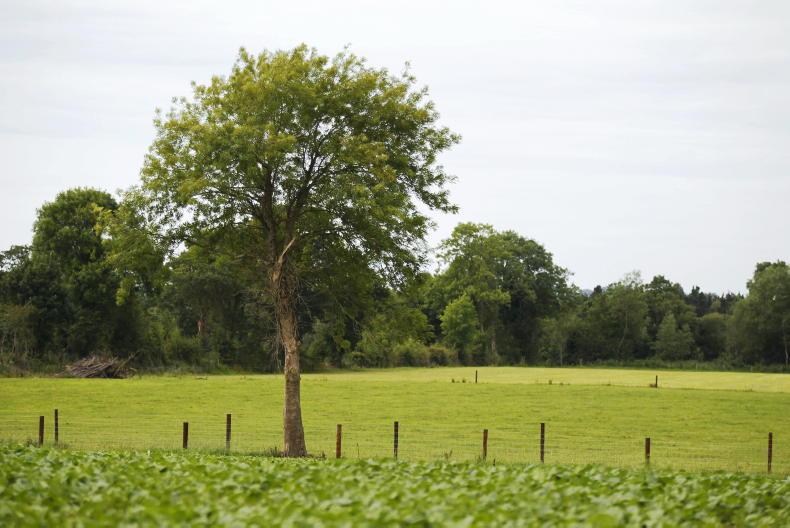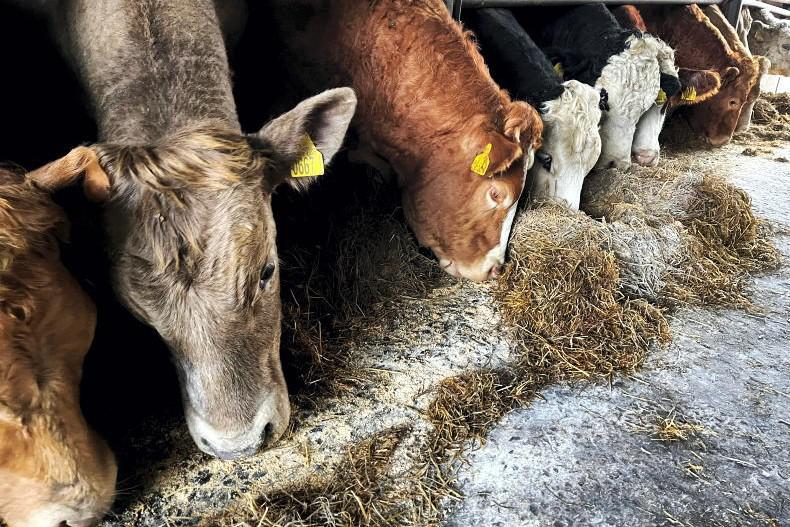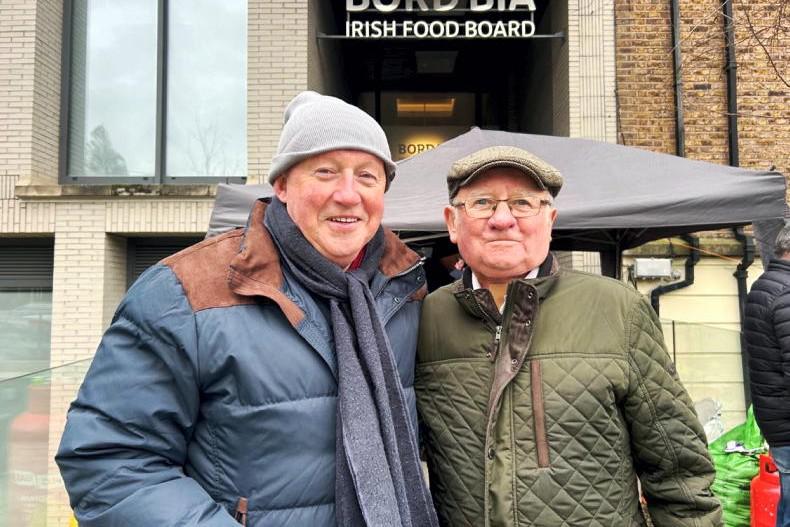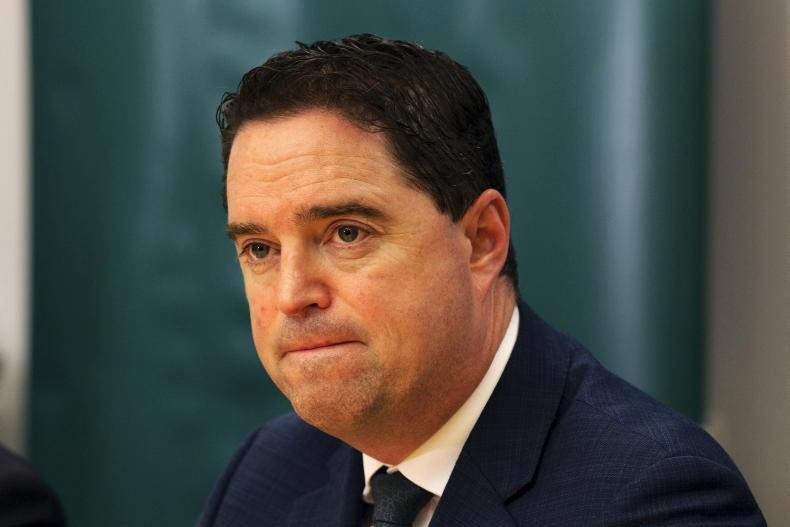Ahead of its AGM on Thursday, the IFA held four regional meetings where farmers asked questions of IFA president Tim Cullinan and director of policy/chief economist Tadhg Buckley.
Armchair farmers, convergence, designated land, the Sheep Welfare Scheme and carbon sequestration were all issues raised by farmers. Here’s what they said.
Henry Burns said: “In 2005, a typical suckler farmer on 100 acres had €20,000 in basic payments and €9,000 in REPS. That’s now shrunk to €14,000 and €5,000 maximum from GLAS. That’s the gap that needs to be filled in CAP payments, the marketplace isn’t filling it in any way.” Tim Mulcahy said that “convergence is robbery” and urged the IFA to fight continued convergence.
Dairy farmer and Grassland Farmer of the Year Caroline Walsh said: “For the last 10 years for paying my IFA membership I have not been represented. Basically I pay my membership the same as everybody else. I can’t fall back on my basic farm payment because it’s not substantial.
“I suppose we’ve lost out on the 60% grant. We’ve had no installation aid, we’ve had no young farmer top-up and the easiest thing to do was to kick us down the road.
“It might be an idea to sort out these young forgotten farmers that are actively farming. I can’t compete with any of my neighbours, I think it’s an absolute disgrace that we’re left there because we are the future.
“You have left us there high and dry and now is the opportunity. We’ve been told that we have to wait for CAP reform.
“I hope, Mr President, that you will represent me and all those people that have been forgotten about by the IFA.”
Compensation
payment for
designated land
Farmers called for a top-up or compensation payment for designated land which they are farming, recalling that the first REPS paid €242/ha for SAC/SPA land.
IFA president Tim Cullinan said: “We don’t want to see one county having to sustain a lot more planting than any other and in different areas of the country there is a lot of land that is designated. We should be looking at freeing up those lands as well, where the owners of those lands would be interested in getting into a forestry programme.”
Mayo sheep farmer Maria Ryan said: “I’m disappointed that 2017 is used as a reference year. It’s historical at this stage going back over four years. Can we not push for a reference year that is more up to date, for example 2019 or 2020 or an average of both? I feel this will have a negative impact on new entrants and those who are genuinely trying to build up their flock.”
Sheep farmer Pat Chambers also called for the scheme payment to rise, even if only by another €5 to €15. The IFA president responded by saying “every fiver we get is important”.
Monaghan farmer Brian Treanor called on the IFA to enrol experts in a study of the value of hedgerows and trees in the sequestration of carbon on Irish farms.
Cullinan responded, suggesting Teagasc should undertake this carbon sequestration analysis: “If Bord na Móna can measure it and get paid for it then why can’t we?”
Edel Hanley, a farmer from Woodford, Co Galway, said: “Why are we at a situation where we still don’t know what a carbon credit is worth or how it’s measured or anything on it? It seems a bit ludicrous in this day and age.”
Pesticides, food security, nitrates
Tom Malone: “We are being asked to reduce pesticide and fertiliser usage, but are operating with one hand tied behind our back without CRISPR and gene-editing technology.” Derek Deane: “CAP is going strongly away from food security. We must fight tooth and nail to minimise the percentage of money going to the new eco-scheme.”Unidentified farmer: “Changes from organic nitrate levels on grazing platforms to the camber on farm roadways are not without merit, but we need more transitional time to adjust.”
Ahead of its AGM on Thursday, the IFA held four regional meetings where farmers asked questions of IFA president Tim Cullinan and director of policy/chief economist Tadhg Buckley.
Armchair farmers, convergence, designated land, the Sheep Welfare Scheme and carbon sequestration were all issues raised by farmers. Here’s what they said.
Henry Burns said: “In 2005, a typical suckler farmer on 100 acres had €20,000 in basic payments and €9,000 in REPS. That’s now shrunk to €14,000 and €5,000 maximum from GLAS. That’s the gap that needs to be filled in CAP payments, the marketplace isn’t filling it in any way.” Tim Mulcahy said that “convergence is robbery” and urged the IFA to fight continued convergence.
Dairy farmer and Grassland Farmer of the Year Caroline Walsh said: “For the last 10 years for paying my IFA membership I have not been represented. Basically I pay my membership the same as everybody else. I can’t fall back on my basic farm payment because it’s not substantial.
“I suppose we’ve lost out on the 60% grant. We’ve had no installation aid, we’ve had no young farmer top-up and the easiest thing to do was to kick us down the road.
“It might be an idea to sort out these young forgotten farmers that are actively farming. I can’t compete with any of my neighbours, I think it’s an absolute disgrace that we’re left there because we are the future.
“You have left us there high and dry and now is the opportunity. We’ve been told that we have to wait for CAP reform.
“I hope, Mr President, that you will represent me and all those people that have been forgotten about by the IFA.”
Compensation
payment for
designated land
Farmers called for a top-up or compensation payment for designated land which they are farming, recalling that the first REPS paid €242/ha for SAC/SPA land.
IFA president Tim Cullinan said: “We don’t want to see one county having to sustain a lot more planting than any other and in different areas of the country there is a lot of land that is designated. We should be looking at freeing up those lands as well, where the owners of those lands would be interested in getting into a forestry programme.”
Mayo sheep farmer Maria Ryan said: “I’m disappointed that 2017 is used as a reference year. It’s historical at this stage going back over four years. Can we not push for a reference year that is more up to date, for example 2019 or 2020 or an average of both? I feel this will have a negative impact on new entrants and those who are genuinely trying to build up their flock.”
Sheep farmer Pat Chambers also called for the scheme payment to rise, even if only by another €5 to €15. The IFA president responded by saying “every fiver we get is important”.
Monaghan farmer Brian Treanor called on the IFA to enrol experts in a study of the value of hedgerows and trees in the sequestration of carbon on Irish farms.
Cullinan responded, suggesting Teagasc should undertake this carbon sequestration analysis: “If Bord na Móna can measure it and get paid for it then why can’t we?”
Edel Hanley, a farmer from Woodford, Co Galway, said: “Why are we at a situation where we still don’t know what a carbon credit is worth or how it’s measured or anything on it? It seems a bit ludicrous in this day and age.”
Pesticides, food security, nitrates
Tom Malone: “We are being asked to reduce pesticide and fertiliser usage, but are operating with one hand tied behind our back without CRISPR and gene-editing technology.” Derek Deane: “CAP is going strongly away from food security. We must fight tooth and nail to minimise the percentage of money going to the new eco-scheme.”Unidentified farmer: “Changes from organic nitrate levels on grazing platforms to the camber on farm roadways are not without merit, but we need more transitional time to adjust.” 








SHARING OPTIONS